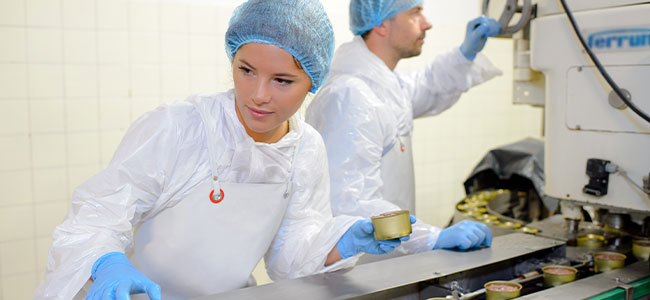
Enhancing Safety Practices for Essential Workers in Food Production
Essential safety measures for workers in the food production industry must focus on risks, compliance and strategies—from physical hazards to mental health support—to foster a safer workplace.
- By Jane Marsh
- Apr 22, 2024
The world relies on essential workers in the food production industry daily, often without realizing it. These dedicated individuals are the backbone of everyone’s daily sustenance, ensuring people always have nutritious meals. However, their commitment comes at a cost. They face significant challenges, particularly concerning health and safety.
From the risks of operating heavy machinery to the exposure to harmful chemicals and the constant threat of workplace accidents, these workers navigate a minefield daily to fulfill their roles. Recognizing their contributions and the difficulties they endure is crucial to keep the food production industry thriving.
Understanding the Risks
According to the U.S. Bureau of Labor Statistics, the agricultural sector remains the most dangerous in the U.S., a stark reminder of the critical need for heightened safety measures. In food production operations, workers are constantly exposed to various risks that can threaten their health and safety.
These include physical hazards from operating complex equipment, chemical dangers and biological threats. Each of these hazards requires specific attention and mitigation strategies to ensure the safety and well-being of the workforce.
Moreover, the rising global meat consumption significantly impacts the industry’s carbon footprint and stresses production. It presents environmental challenges people cannot ignore.
The repercussions of these risks on worker well-being and productivity are profound. Injuries, illnesses and the psychological impact of working in high-risk environments can lead to absenteeism, turnover and decreased efficiency. It underscores the importance of comprehensive risk assessment as the foundation of developing and implementing effective safety measures.
Legislative Framework and Compliance
Several crucial regulations in the food production industry govern worker safety, including OSHA standards, the Food Safety Modernization Act (FSMA) and local health codes. Compliance with these regulations is not just a legal requirement but also a moral obligation to protect the health and safety of workers.
Organizations can swiftly adapt safety protocols by staying informed about legislative changes. It also ensures that practices are current with the latest standards and reflects a commitment to creating a safe, healthy work environment. This proactive approach safeguards the workforce and reinforces the company’s reputation as a responsible and ethical employer.